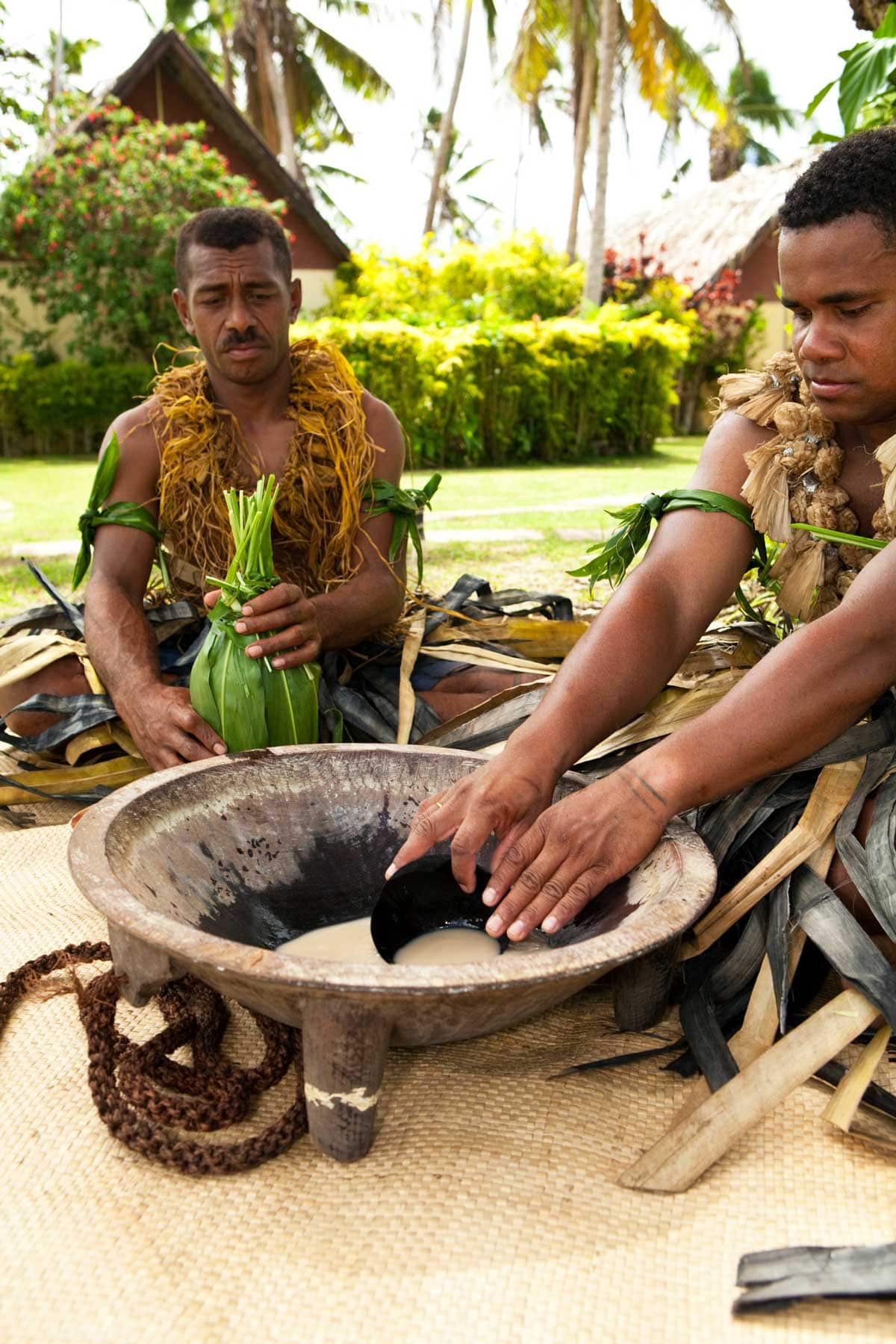Growing up with Pentecostal Fijian parents, drinking kava was considered a ‘sin’, says Ratu Maseinawa, a Fijian-Australian from Brisbane.
Kava, a mildly narcotic drink made from the root of the pepper plant, is used for ceremonial and social purposes in Fiji. It is prepared for celebrations, bereavement, and to welcome visitors to one’s village. Maseinawa believes that a mistranslation of The Bible likely contributed to this belief within the Pentecostal Fijian church. Other Christian denominations in Fiji do not share this belief, he explains.
Maseinawa was inspired to try kava after a family trip back to their Fijian village for Christmas in 1988. As a young eigHth-grader, he was intrigued by the kava ceremony hosted by his uncles and grandparents. Someone passed him a cloth strainer to prepare the drink and asked him to throw the kava residue out into the garden.
But then Maseinawa’s father’s stern voice boomed: “He’s not allowed to touch kava.”
Upset, shocked, and embarrassed, Maseinawa sat down as tears prickled his face. "This is wrong," he thought, "the other kids are allowed to do it and I’m not. Whatever they’re doing here, that’s me. How can I call myself a Fijian if I'm not allowed to touch that?"

When he was 21 and officially out of “parental supervision” as he calls it, Maseinawa had his first drink of kava. He attends a Methodist church now, which doesn't have cultural restrictions against kava consumption.
When the coronavirus swept across the globe, its transmissible nature meant Fijians needed to modify the way they shared this drink.
Participants traditionally sit in a circle, close to each other, and one after the other, they take turns to drink the beverage. Fijians scoop the kava from a large communal bowl, tanoa, into bowls made from coconut shells, called bilo. They may use their own individual bilo or pass one bilo around, rinsing it in a water bowl in between participants.
Before the lockdown, Maseinawa and his friends gathered every Friday from 7pm to midnight to share kava. Oftentimes 20 to 30 people would gather. But coronavirus has limited the number of people drinking in a session.
Facebook has become an unexpected saviour. During the lockdown, Maseinawa and his friends would share photos of their kava sessions or host virtual events on Facebook Live. It was to maintain the common bond that kava usually brought, he explains.
Buka Sokovagone, another Queenslander based in Sunshine Coast, tried an online kava video call but it felt like “a long-distance relationship”. Chatting with strangers across the world didn’t resonate with him, as he typically shares kava with his closest friends. During the lockdown, he stopped entirely because he didn’t want to drink alone. With restrictions eased, Sokovagone and his friends host smaller sessions, where they practice social distancing, wash their hands more frequently throughout, and bring their own bilo.
Maseinawa says, “restricting fully sharing kava bowls in a common place makes me feel like we’re not really practising the kava ceremony in its pure form", but he understands the need to adapt the practice to prevent virus transmission.
Traditionally, the ritual's physical closeness in a tight drinking circle bears significance, he says. “You are me and I am you, we are one. Especially in this foreign land that we now call our home, coming together for a moment like that signifies our identity as Fijians, together as one.”
“As men, we normally don’t sit together, the only place where we sit together as men, young and old, is around a bowl of kava.” Sitting close allows everyone to hear and contribute to the conversation easily, says Maseinawa. “We pass on knowledge to the young ones, the older ones are able to hear from the young ones.”
Coming together for a moment like that signifies our identity as Fijians, together as one.
“It’s a place where men can open up about their problems, what they are going through and help each other out.”
While Fijians hope for a future where kava sharing can return to ‘normal’, Maseinawa believes that they can continue keeping the feeling of unity afloat through sharing kava, while speaking a little louder and using tools like Facebook.
Love the story? Follow the author here: Instagram @s.seraphina
SBS Food is a 24/7 foodie channel for all Australians, with a focus on simple, authentic and everyday food inspiration from cultures everywhere. NSW stream only. Read more about SBS Food
Have a story or comment? Contact Us

